-
•
•
24 responses
Times and Seasons is pleased to announce that — after a very long stint as a guest blogger — Ben S. has agreed to come onboard as a permanent contributor. I certainly look forward to many interesting posts. Welcome Ben! Read More
-
•
•
52 responses
Each church member responds to problematic issues in church history, doctrine, and culture in their own way. Some people ignore them, some engage in apologetics, and some leave the church entirely. As for me, I’m a categorizer. I categorize them away. I separate human knowledge and experience into two overarching spheres — science and religion. For this to make sense, let me start with my definitions of those two spheres. Read More
-
•
•
43 responses
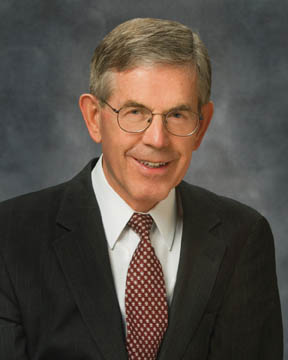
Quotes of Note will be a recurring series of lesser-known General Authority statements of interest, as conversation starters. I’m starting with a favorite. “We need to develop the capacity to form judgments of our own about the value of ideas, opportunities, or people who may come into our lives. We won’t always have the security of knowing whether a certain idea is “Church approved,” because new ideas don’t always come along with little tags attached to them saying whether they have been reviewed at Church headquarters. Whether in the form of music, books, friends, or opportunities to serve, there is… Read More
-
•
•
23 responses
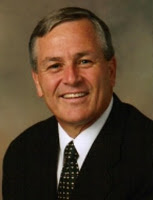
While off-year elections, like yesterday’s U.S. elections, are usually almost irrelevant, there was an interesting, if not important, race for those following Mormons in Politics—and the result appears to be the election of Jerry Lewis. Read More
-
•
•
11 responses
Re-reading the second half of Paul Johnson’s A History of Christianity last week, I ran across this interesting commentary penned by John Wesley. Here’s what he wrote sometime in the late 18th century (quoted at page 368; emphasis added): Read More
-
•
•
66 responses
It’s that time again — reader participation day, so come join in and let yourself be heard! Back in January, I asked what brings you to the bloggernacle. Today, I want to narrow the question down to Times & Seasons in particular. Several of you are new here in the past six months, and there are a few old friends that I haven’t seen in a while (Bill of Wasilla, where’d you go?) I want to know what keeps you guys coming back here, week after week, month after month. Feel free to take the discussion in any direction you’d like,… Read More
-
•
•
10 responses
Publishers Weekly announced their list of the top ten religion books for 2011 recently. Read More
-
•
•
19 responses
Here are the original words to this hymn. Read More
-
•
•
122 responses
This from then-member of the Quorum of the Twelve Spencer W. Kimball in the October 1953 General Conference: Read More
-
•
•
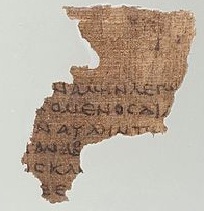
1-3 John seem to be letters written to different churches in the region of Ephesus mostly in response to a group of apostates whom we call Gnostics. Most scholars believe that John wrote these letters before he wrote the Gospel of John, though that is not a unanimous opinion. There are, for example, some who believe that at least 1 John was written after the Gospel of John, and some such as Stephen Smalley (Word Biblical Commentary, vol. 51) argue that the John’s gospel was written before any of the letters. There is also dispute as to whether all four… Read More
-
•
•
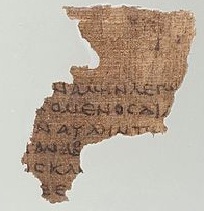
Before you read the letters from Peter, take a few minutes to recall who he was: What was his position in the Church? What particular experiences did he have with the Savior? What might he have learned from those experiences? How does that background inform these letters? Outlines of 1 Peter, 2 Peter, and Jude 1 Peter (adapted from Bo Reicke, The Epistles of James, Peter, and Jude) Like Ephesians, 1 Peter appears to be a baptismal sermon, perhaps written to be read at baptismal services one year and, it seems, addressed primarily to non-Jewish converts. Greeting (1:1-2) The responsibilities… Read More
-
•
•
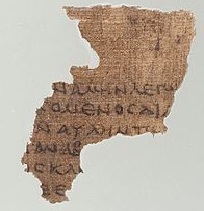
We do not know who the author of this epistle was (there are several persons named James in the New Testament), but tradition says that it was James, the brother of Christ and the presiding elder in Jerusalem after Christ’s death. (See, for example, Acts 15:13, where he presides over the Jerusalem conference called to deal with the Gentiles joining the early Church.) What do we know about Jesus’ family’s relation to him prior to the crucifixion? (See, for example, John 7:1-5.) When do you think James became a follower of Christ? Is 1 Corinthians 15:7 relevant? Does that verse… Read More
-
•
•
155 responses
It started when I was about four-years-old. My oldest brother became a Cub Scout — and got a uniform and badges and all sorts of awesome awards and activities. As soon as I could read, I began pouring over Boys’ Life…and coveting. We didn’t even have Achievement Days/Activity Day back then (not that it compares, but still), so I begged my parents to let me be a Brownie in the Girl Scouts organization. Alas, the church leadership had strongly recommended avoiding the heathen group, which left the girls with…nothing. For 43 years I’ve carried this uneasiness about the disparity between… Read More
-
•
•
38 responses
In my post last month, I wrote about fundamental scripture based doctrine that lead us to value the earth. Now I would like to demonstrate that Mormons care for the earth through their stewardship, primarily in the management of our own homes and families. The first principle of stewardship is thrift. If we as a people live by the principle of thrift, we will as a natural result consume less and be in a position to serve more. Using our resources, financial and otherwise, wisely is the first step in becoming the stewards that God expects us to be. If… Read More
-
•
•
52 responses
Over the past ten years, my approach to the doctrines of the church has shifted dramatically. I’m Mormon now in a very different way than I was then. With the various discussions attempting to define what it means to be Mormon, I thought I’d share what it means to me (well, what it means to me at this time — check back in ten more years and we’ll see where things are at). I believe that the religion that does nothing for people in this life isn’t likely to do much for them in the next. The church is true… Read More
-
•
•
53 responses
I shaved today. My beard (of at least the last two-and-a-half years) is gone. Read More
-
•
•
35 responses
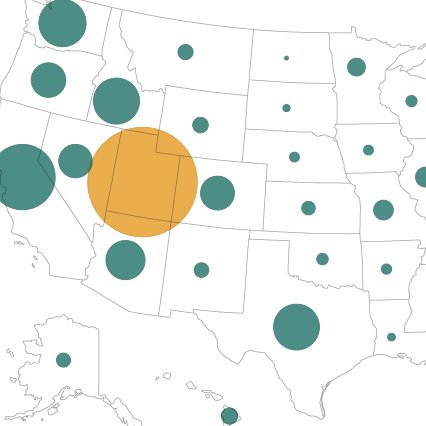
The Chronicle of Higher Education has given us a new statistical toy to play with. Read More
-
•
•
51 responses
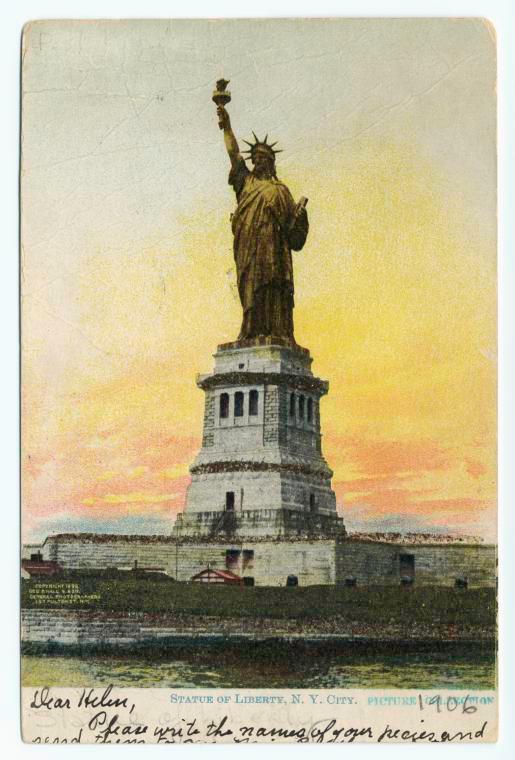
The New York Public Library posted on Facebook this morning that today is the 125th anniversary of the dedication of the Statue of Liberty. While intended and generally thought of as an icon of freedom, its place in New York harbor, through which much immigration to the United States has passed, has meant that it is also considered a symbol of immigration. Read More
-
•
•
8 responses
Friday, October 28: 9:00 am: Decorate church building Read More
-
•
•
8 responses
I hope to see some of y’all there. Read More
-
•
•
20 responses
The panic prone little bird concluded the sky was falling, heralding the end of all creation when a nut fell from the tree above him, bonking him on the head. Something had indeed fallen, giving him a slight injury, but it was not the sky. It was actually lunch–vital sustenance handed to him, a grace independent of all merit on Chicken Little’s part. Read More
-
•
•
29 responses
(This is the third part in a series about my vision for a community. Here’s Part One and Part Two.) Time to look at distribution of labor, education and job skills, and self-determination. … Like I said previously, I’m targeting a $1,000-per-month lifestyle that covers food and housing for a family. In practice, the way I imagine implementing it is with a three-tier system: Tier 1: $2,000/month Tier 2: $1,000/month + part-time community maintenance Tier 3: $0/month + full-time community employment Each tier is designed to meet a different individual need. Tier 1 is for people who have money and/or… Read More
-
•
•
16 responses
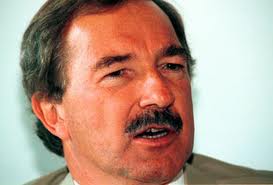
Forbes’ annual look at the 400 richest Americans was released last month, so I thought I would again take a look at the Mormons on the list, and was surprised to find a different Mormon on top of the list. Aaron B. claimed last May that Steven Udvar-Házy is LDS, and I have been able to verify that at least his wife is from an LDS family. Udvar-Házy now tops the Mormons on the Forbes list. Read More
-
•
•
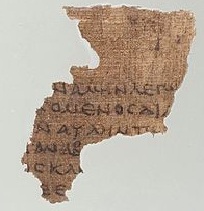
1 Timothy 3 3:15-16: How is the Church “the pillar and ground of truth”? What metaphor is Paul using? How does that metaphor help us understand what the Church does? What does he mean when he speaks of “the house of God”? Does he mean the church as a whole or individual congregations? What does Paul mean when he says “without controversy”? To what is Paul referring with the word mystery? Why is the word mystery an appropriate reference for that case? (Verse 16 seems to be another quotation from a hymn.) What is Paul talking about when he says… Read More
-
•
•

There is even more to cover than usual in this lesson. The result is 12 pages of study material. Because it usually helps to understand the context in which the verses one studies occur, I will supply some background information about each book, as well as an outline of the text of each. Then I will follow those with a few study questions. Remember as you read these materials that they are to help you study the letters assigned for the lesson. They are not suggestions for teaching the lesson. Of course a person could use these to help her… Read More
-
•
•
32 responses
Given that my wife is female and her heavy and varied involvement with food (cooking school, PhD in Food Studies (scroll to bottom), sometimes-food-blog, etc.), most people assume she’s doing all the cooking at our house. Not so. In fact, even before we were married, I did so much of it that at our sealing we laughed when Grampa said (tweaking us both in turn), “Now Ben, when you come home, and C. has burned the roast…” We maintain a strict division of labor in the kitchen. She does all the baking, and most of the French and American food.… Read More
-
•
•
21 responses
No, today isn’t a national holiday. It’s not any particular religious festival. We’re more than a week away from Halloween, a month from Thanksgiving, and a couple months from Christmas. The only reason you have today off (assuming you have today off) is because today is Saturday. And yet . . . On October 22, 1986, President Ronald Reagan signed into law the Tax Reform Act of 1986, a bipartisan bill. That law, signed 25 years ago today, was the last fundamental tax reform in which the U.S. has engaged. Among other things, it broadened the tax base, reduced the… Read More

